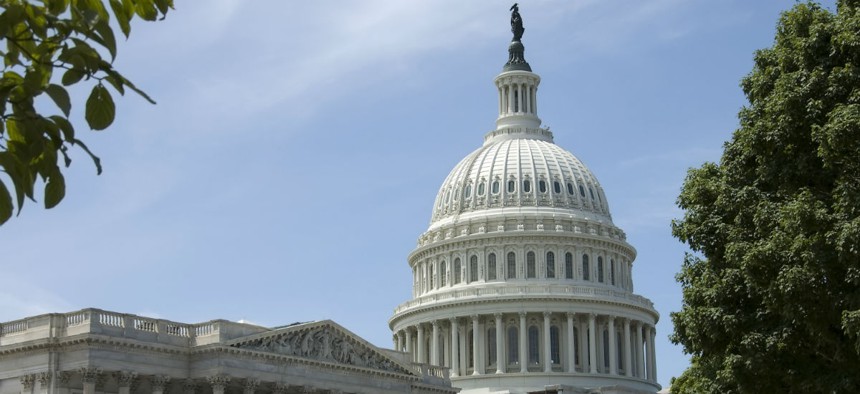
By Pierdelune / Shutterstock.com
House Backs Pay Freeze, Setting Up Fight With Senate
A Senate panel has approved a pay hike for federal civilians in 2019.
The House on Thursday approved a fiscal 2019 appropriations package 217-199 that effectively endorses President Trump’s proposal to freeze federal civilian employees’ pay next year, putting it at odds with the Senate on the issue.
The Financial Services and General Government appropriations bill, which is included in the minibus package (H.R. 6147), typically serves as the vehicle for congressional action on federal employee compensation. But the bill lacks any mention of an across-the-board pay increase for civilian workers, effectively endorsing Trump’s proposal to keep pay at 2018 levels.
Although some House Democrats have endorsed a bill that would provide civilian federal workers with a 3 percent pay raise in 2019, it has not been acted on.
Thursday’s vote increases the likelihood of a fight between lawmakers over a potential pay raise for federal employees. Last month Senate appropriators included a 1.9 percent pay raise for feds in that chamber's fiscal 2019 Financial Services and General Government appropriations bill. The Senate Appropriations Committee approved the bill unanimously after voting down 29-2 a Republican amendment stripping the pay raise provision.
Although the full chamber has not yet voted on the spending package, senators are expected to approve the measure along with other appropriations bills in a similar minibus format. After that vote, lawmakers from the House and Senate would likely debate whether to approve a pay increase in conference committee.
The 1.9 percent pay increase proposed by the Senate would still fall short of the raise proposed by the Trump administration for members of the military. In 2019, service members would receive a 2.4 percent pay increase under the White House proposal.
Neither chamber has opted in the spending package to fund the White House’s proposed $1 billion interagency workforce fund, designed to support agency pay-for-performance pilot programs and billed by Office of Management and Budget officials as a substitute for the traditional across-the-board raise.







